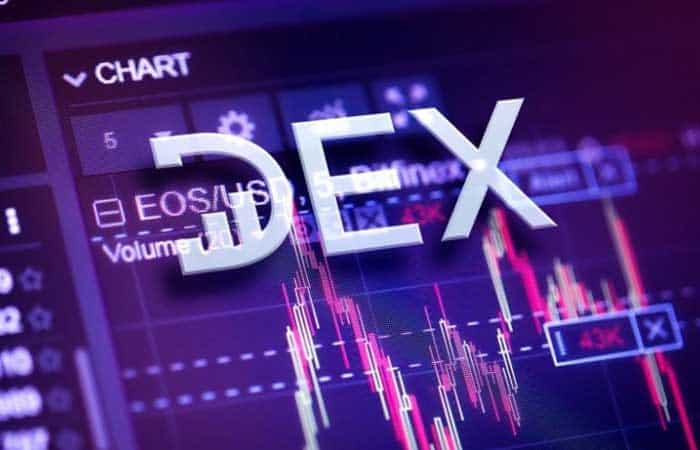
Cryptocurrency exchanges have played a pivotal role in the development and adoption of digital assets. From the early days of Bitcoin to the present era of diverse cryptocurrencies, these platforms have undergone significant evolution. Cryptocurrency trading largely occurred on peer-to-peer platforms or through over-the-counter (OTC) transactions. As the demand for a more organized and liquid market grew, centralized exchanges emerged. Platforms like Mt. Gox, one of the first major Bitcoin exchanges, became instrumental in providing a space for users to buy and sell cryptocurrencies.
Centralized exchanges quickly became the dominant force in the cryptocurrency ecosystem. Platforms like Binance, Coinbase, and Kraken gained prominence, offering users a convenient way to trade various cryptocurrencies.
Despite their widespread use, centralized exchanges faced challenges. Security vulnerabilities, instances of hacking, and concerns about custody of funds raised questions about the centralized model. Additionally, reliance on a single point of control went against the decentralized ethos that underpins many cryptocurrencies.
What Is Decentralized Exchanges (DEX)
This peer-to-peer model aligns with the decentralized philosophy of cryptocurrencies. Trades occur directly between users through a trustless mechanism, enhancing security and reducing the risk of hacking.
The key features of decentralized exchanges (DEX) fundamentally redefine the way users engage with digital assets, marking a pivotal shift in the cryptocurrency landscape. Trustless trading stands as a cornerstone principle, empowering users by allowing them to maintain control of their funds throughout the entire trading process. Moreover, DEX platforms prioritize enhanced security measures and user privacy, acknowledging the paramount importance of safeguarding sensitive information and assets in the decentralized ecosystem. Notably, community governance emerges as another distinctive feature, reflecting a commitment to inclusivity and decentralization. By involving the community in decision-making processes, some DEX platforms empower users to actively shape the direction and evolution of the platform. In essence, these key features collectively contribute to the transformative power of DEX, paving the way for a decentralized future and reshaping the crypto landscape.
As decentralized exchanges continue to gain traction, they represent a transformative force in reshaping the cryptocurrency landscape. The move towards trustless, peer-to-peer trading addresses longstanding concerns associated with centralized exchanges. This article will delve into the rise of DEX platforms, their unique features, and the potential they hold in fostering a more decentralized and secure future for crypto trading. Through an exploration of the transformative power of DEX, we aim to understand how these platforms are challenging traditional norms and contributing to the evolution of the cryptocurrency ecosystem.
The Rise And Impact of DEX
Decentralized exchanges (DEX) have emerged as a significant paradigm shift in the cryptocurrency landscape, gaining increasing popularity in recent years. DEX platforms, built on blockchain technology, signify a departure from the centralized model and present a more decentralized, secure, and user-centric approach to cryptocurrency trading.
DEX is not without its challenges. Liquidity issues pose a significant disadvantage, as some DEX platforms struggle in comparison to their centralized counterparts. This can impact the efficiency of trading and limit the availability of assets. Additionally, the user experience on DEX platforms can vary, with certain interfaces perceived as less user-friendly than those of centralized exchanges. Overcoming this hurdle is crucial for widespread adoption. Finally, regulatory uncertainty surrounds DEX platforms, operating in a legal grey area subject to evolving frameworks that may impact their functionality. Navigating these challenges is essential for DEX platforms to realize their full potential in reshaping the landscape of cryptocurrency trading.
Decentralized Exchanges Vs. Centralized Exchanges
Trustless trading is the foundational principle at the heart of decentralized exchanges (DEX), signifying a revolutionary departure from the conventional model where users rely on a centralized entity for transaction facilitation. Within the realm of DEX, trustless trading epitomizes a system allowing users to engage in peer-to-peer transactions without the necessity of a trusted intermediary. This concept is operationalized through three key components. These contracts serve as the backbone of trustless trading by facilitating and enforcing the terms of trade, ensuring that transactions occur seamlessly and without the need for a middleman.
Decentralized ownership of funds distinguishes DEX from centralized exchanges, as users are not required to deposit their funds into the platform. Finally, the immutability of transactions on DEX is ensured through their recording on a blockchain—a transparent and unchangeable ledger of all trades. Once a transaction is confirmed, it attains an indelible status, impervious to alteration or tampering. Collectively, these aspects of trustless trading encapsulate the essence of DEX, revolutionizing the dynamics of peer-to-peer transactions in the cryptocurrency landscape.
How DEX Eliminates the Need for Intermediaries
Direct Wallet-to-Wallet Transactions: DEX enables users to trade directly from their cryptocurrency wallets. There’s no requirement to deposit funds into a centralized exchange wallet, reducing the risk associated with trusting a third party with custody.
Automated Order Matching through Smart Contracts: Smart contracts on DEX automatically match buy and sell orders based on predefined conditions.
Security And Anonymity: Core Features Of DEX
Many DEX platforms undergo third-party audits of their smart contracts to identify and address potential vulnerabilities, ensuring secure and reliable transaction codes. Cold wallet storage, a common practice, minimizes the risk of unauthorized access by keeping users’ funds in wallets not connected to the internet. Additionally, DEX promotes decentralized ownership, where users retain control over their private keys and funds, reducing the susceptibility to hacking associated with centralized exchanges.
DEX platforms also prioritize user privacy and anonymity, fundamental tenets of decentralized exchanges. Operating without Know Your Customer (KYC) requirements, users can trade without disclosing personal information, preserving privacy aligned with the pseudonymous nature of blockchain transactions. Facilitating direct peer-to-peer transactions without intermediaries, DEX ensures sensitive user data is not stored on central servers. Limited data collection further protects user privacy compared to centralized exchanges known for extensive data collection practices.
Integrating advanced security measures, such as the implementation of Quantum AI, further fortifies the resilience of DEX platforms. Bitcoin, as a proven and secure blockchain, can be utilized to enhance the security infrastructure of DEX, providing an additional layer of protection against potential threats. The decentralized nature of Bitcoin aligns with the principles of DEX, contributing to a robust and trustless environment for cryptocurrency trading.
While incidents like the 2014 Mt. The Gox breach and the 2019 Binance hack resulted in substantial losses on centralized platforms, DEX platforms like Uniswap and SushiSwap faced incidents that were promptly addressed without compromising user funds directly. In conclusion, the emphasis on security, privacy, and decentralized ownership positions DEX as an appealing option for users seeking a more secure and private trading environment in the cryptocurrency landscape.
DEX 2.0: Innovations And Technological Advancements
Decentralized exchanges (DEX) have evolved beyond their initial iterations, ushering in a new era often referred to as DEX 2.0. This phase is marked by cutting-edge technological innovations aimed at addressing limitations and enhancing the overall user experience. The following are key technological advancements shaping DEX 2.0:
Closing Thoughts
DEX 2.0 marks a significant advancement in the world of decentralized exchanges, introducing a spectrum of innovations designed to elevate the user experience and overcome historical challenges. Firstly, a notable focus lies on enhancing user interfaces and experiences. DEX 2.0 platforms prioritize user-friendly interfaces, ensuring that the trading experience becomes more intuitive and accessible to a wider audience, thereby democratizing access to decentralized finance. Complementing this, DEX 2.0 introduces innovative liquidity solutions, particularly through automated market makers (AMMs).
Layer 2 scaling solutions, including Optimistic Rollups and zk-rollups, are leveraged to address scalability challenges, enhancing transaction throughput and reducing fees. Recognizing the multi-chain reality of the crypto space, DEX 2.0 platforms are designed to operate seamlessly across different blockchain networks, enabling users to trade assets from diverse blockchains. This emphasis on interoperability fosters a more inclusive and collaborative decentralized trading environment, marking a pivotal stride towards the maturation of decentralized finance.



